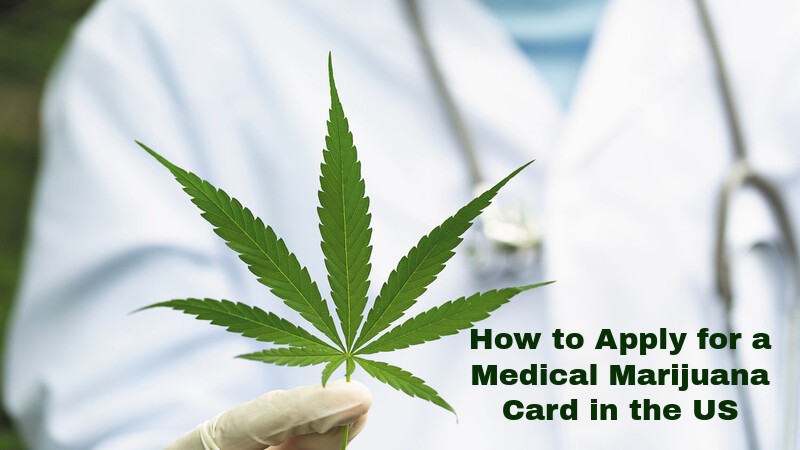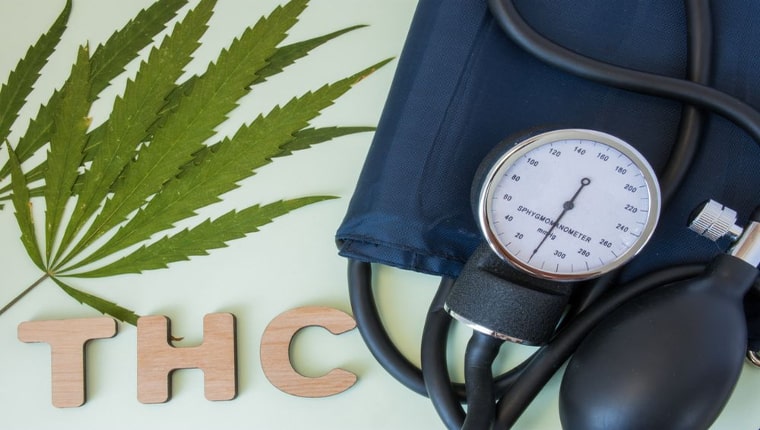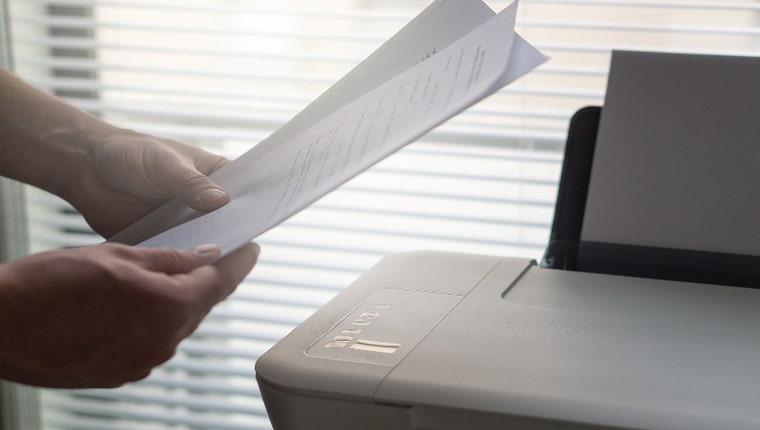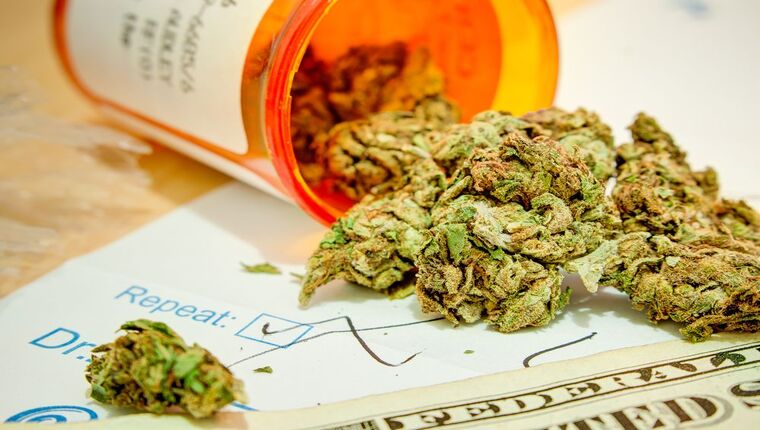 As cannabis continues to gain recognition and credibility as a medical treatment, increasing numbers of people are turning to it for the relief of difficult-to-treat conditions. However, marijuana’s status as a tightly-regulated and still federally-illegal substance in the US means patients must jump through a few hoops before they can achieve the soothing benefits of this plant. In this article, we’ll cover everything curious prospective patients need to know about qualifying for, applying for, and getting the optimal use out of a medical marijuana card.
As cannabis continues to gain recognition and credibility as a medical treatment, increasing numbers of people are turning to it for the relief of difficult-to-treat conditions. However, marijuana’s status as a tightly-regulated and still federally-illegal substance in the US means patients must jump through a few hoops before they can achieve the soothing benefits of this plant. In this article, we’ll cover everything curious prospective patients need to know about qualifying for, applying for, and getting the optimal use out of a medical marijuana card.
For dedicated in-depth information about the medical marijuana card registration and approval process in your state, check out our detailed local medical marijuana patient guides, below.
How to Get a MMJ Card in Florida
Who Qualifies for a Medical Cannabis Card in the US?
Currently, the use of cannabis as a medicinal treatment is legal in 40 US states and the District of Columbia, though each state has its own rules governing which health conditions it can be used to treat. Most states have approved medical marijuana for the treatment of 10-20 physical and mental health conditions, typically including cancer, chronic pain, anorexia, HIV/AIDS, epilepsy, glaucoma, Parkinson’s Disease, multiple sclerosis, and PTSD, while other states are quite strict, only allowing medical marijuana (often abbreviated to MMJ) treatment for patients with terminal illnesses or a select few other conditions. On the other side of the scale, the state of Oklahoma leaves medical marijuana recommendations completely at the discretion of the evaluating physician.
However, a person with one of these diagnoses cannot simply walk into a medical cannabis dispensary and make a purchase – unless they first register with their state as a medical marijuana patient. In fact, dispensaries in medical-only states won’t even let patrons inside the store without a valid medical marijuana patient identification card. Application for medical marijuana patient status is open to all adults residing in legal states and minors with approval from their parent or legal guardian. All applicants (or their guardians) must present a government-issued photo ID at the time of application.
Medical Marijuana Caregivers
The caregiver of a person approved to use medical marijuana may apply for an MMJ caregiver card. This card grants the caregiver access to make purchases at medical marijuana dispensaries, dispense it to patients in their care, and in some states, cultivate medical marijuana plants. The application process for caregivers is very similar to that of patients and also requires registration with the Medical Marijuana Use Registry.

MMJ patients may need to make fewer dispensary trips, as they are allowed higher daily purchase limits.
What Are the Benefits of Getting an MMJ Card?
In states where use and possession are restricted to medical patients, getting a medical marijuana card is the only legal way to access cannabis. Even in states where cannabis possession is decriminalized, status as a card-carrying medical marijuana patient may lend a layer of legal protection should your cannabis use ever become a cause for conflict with law enforcement, housing providers, or employers. It’s wise for all new medical marijuana patients to consult a cannabis attorney to understand their rights and how cannabis laws are applied in their state of residence.
Residents of Washington DC and of the 21 states where adult-use (recreational) cannabis is legal have the option of simply walking into a dispensary and purchasing weed to self-treat their ailments. But for the following reasons, it’s usually still worth spending the time, effort, and money to obtain a medical marijuana card in these states.
-
-
- MMJ patients are given priority access to cannabis products during shortages, or extenuating circumstances, such as during the designation of dispensaries as essential businesses during the onset of the COVID-19 pandemic.
- MMJ patients have access to higher-potency products than adult-use consumers, which can make a considerable difference in the effective management of pain or other symptoms.
- MMJ patients may need to make fewer dispensary trips, as they are allowed higher daily purchase limits.
- Possession limits are also higher for MMJ patients, and in some states, registered patients are also permitted to cultivate their own marijuana plants.
- Medical marijuana typically costs less out the door than recreational weed, with lower (or sometimes zero) sales taxes levied on it.
-
Drawbacks of Getting an MMJ Card
While there are numerous benefits to getting a medical cannabis card, these potential drawbacks are worth noting. Be sure to evaluate whether any of these limiting factors will affect your lifestyle before beginning a medical marijuana application.
-
-
- Due to marijuana’s federally-illegal status, people who use medical marijuana are not permitted to work in federal offices of any sort.
- MMJ patients may not hold a CDL (commercial driver’s license)
- Medical cannabis patients are not permitted to own firearms.
- Obtaining medical marijuana involves an investment of time and money, with an initial medical evaluation, a yearly renewal process, and associated fees. At this time, cannabis health services are not covered by medical insurance.
-
How to Apply for a Medical Cannabis Card
The process of applying for a medical cannabis card can look daunting at first, but once you understand the steps, it’s actually rather straightforward. Here’s a step-by-step look at how to obtain a medical cannabis card – online or in person.

Your physician will take note of your current symptoms, diagnoses, and any lifestyle factors that could affect whether medical cannabis is a good fit for you.
Consultation and Evaluation
The first step is a consultation and evaluation with a qualified medical marijuana physician. This evaluation can be done in person at a marijuana clinic, or in the comfort and privacy of your own home via telehealth. The physician will take note of your current symptoms, diagnoses, and any lifestyle factors that could affect whether medical cannabis is a good fit for you. They will also answer any questions you may have about marijuana, from appropriate dosing and strain recommendations to potential side effects and the right delivery method for you.
It is important to note that “regular” primary care physicians are not legally permitted to prescribe medical marijuana. Potential patients must complete their evaluation with a designated “cannabis doctor.” Some cannabis doctors have a dedicated medical marijuana practice, while others also work as alternative medicine practitioners or in medical spas. In addition to these brick-and-mortar doctor’s offices, an increasing number of medical marijuana doctors have taken the entire process online, offering video chat consultations and evaluations via telehealth. However, telehealth services related to medical marijuana are not legal in all states.
Patient Registration
Once you’ve secured a doctor’s treatment approval, the next step is registering as a medical marijuana patient. This process is done through your state’s Department of Health and is typically handled online. Some medical marijuana doctors assist new patients with this application as part of their service. But even if yours does not (or you live in a state where this is not allowed), the application process is generally quite simple, with clear instructions on the state’s website and help available should you require it.
Along with your registration paperwork, you will submit the recommendation of your MMJ doctor, the state registration fee (if your state requires one) and provide a headshot photo of yourself to appear on your MMJ card (some states can access and use your current DMV photo on file). Once your registration is approved, you will be notified by email. Some states utilize automatic online approval, while others may take a few days or weeks to finalize.

Once your medical marijuana patient registration is approved, you’ll be emailed a temporary card that can be printed out and used at medical cannabis dispensaries.
Getting Your Medical Marijuana Card
Once your medical marijuana patient registration is approved, you’ll be emailed a temporary card that can be printed out and used at medical cannabis dispensaries. Within the four weeks following your approval, your official medical marijuana card will arrive in the mail. These cards look similar to a driver’s license, with your name, address, birth date, and patient ID number printed alongside your photo.
This card will be required for entry to medical-only cannabis dispensaries, and it is in your legal best interest to keep this card on you any time you have marijuana in your possession (or in your system), especially if you live in a state where it has not yet been fully decriminalized. If you live in a state with combined medical-recreational dispensaries, you’ll need this card in order to take advantage of special pricing, sales tax rates, higher purchase limits, and a more potent product selection.
Renewal
Medical marijuana cards must be periodically renewed to remain valid. Renewal requires a consultation with a medical cannabis physician to ensure cannabis is still an appropriate treatment method for you. Renewal timeframes vary considerably by state. Florida, for example, requires MMJ card renewals every seven months, while Illinois offers the option to renew as infrequently as every three years. Most states charge a fee for registration renewal.
While it is not required to renew via the same doctor who did your initial evaluation, some medical cannabis doctors do offer a discounted rate for repeat patients. If your current medical marijuana regimen is working well and you don’t feel the need to make changes, switching from in-clinic to online medical marijuana renewal evaluations may be worthwhile.

The cost of getting set up with a medical cannabis card can vary dramatically by state.
How Much Does a Medical Marijuana Card Cost?
The cost of getting set up with a medical cannabis card can vary dramatically by state – and by medical evaluation provider. Medical marijuana doctors throughout the US charge anywhere from $49-$600 for an evaluation. Some providers offer discounts for veterans, payment plan options, or waived consultation fees for prospective patients who do not end up meeting the criteria for medical marijuana approval.
Most states also require a registration fee to be paid at the time of application and with each subsequent MMJ card renewal. These fees also vary considerably by state and run from $15-$200. However, a handful of states, including Massachusetts, Louisiana, and Texas, do not charge application or renewal fees.
How to Find the Right MMJ Doctor
Once you’ve decided to apply for your medical marijuana card, the next question becomes “How to find an MMJ doctor?” A quick internet search will reveal no shortage of physicians advertising MMJ approval services. So what should a prospective medical cannabis patient look for in a doctor?
-
-
- Excellent reputation and reviews
- Passion for helping patients find comfort and relief through medical marijuana use
- A career and educational background showcasing experience and expertise related to cannabis and/or the specific ailment you are seeking to treat, e.g. cancer, HIV, or Parkinson’s Disease.
- Rates that accommodate your health spending budget
- An accessible clinic location and/or the credentials to work with patients in your state via telehealth.
-

The online medical marijuana card registration process is a terrific option for its relative ease, speed, and convenience factor of not having to leave home.
In-Person vs. Online Medical Marijuana Doctors
The decision of whether to visit a brick-and-mortar clinic or to handle your entire medical marijuana application online comes down to personal preference. Patients who are not particularly computer-savvy, require extra help with the application process, or feel more secure discussing their symptoms and treatment with a doctor in person, will likely have a better experience visiting a local clinic.
However, the online medical marijuana card registration process is a terrific option for its relative ease, speed, and convenience factor of not having to leave home. The online option can also be extremely useful for people who are bedridden, housebound, immunocompromised, or who experience anxiety in medical facilities and/or unfamiliar social environments. The online medical marijuana application and registration processes tend to be slightly faster than a clinic visit, with little to no delay between consultation and registration.
If you’re ready to begin the medical cannabis application process, our list below shows the best online medical cannabis providers, what we like about them, and how to get started with the online medical marijuana card provider that’s right for you. For those who feel more comfortable visiting an in-person cannabis clinic, our state-specific medical marijuana pages give an in-depth look at the details of MMJ card registration in each state, each with a full list of the best local medical marijuana clinics.
Our Recommended Online Medical Marijuana Doctors
NuggMD

DigiDrs

For more information about marijuana doctors, read our in-depth guide about Cannabis Clinics.
Category Pages:
- The Cannabis Industry - A cannabis industry overview: its past, factors that have made it grow, and its potential future.
- Cannabis Apps - The rise of cannabis apps; including the different types and uses, best cannabis apps, and industry overview.
- Cannabis Clinics - 101 guide to cannabis clinics and the important role they play for patients and the medical marijuana industry.
- Cannabis Consulting - CNBS' exclusive guide to cannabis consultancy; including different types of cannabis consulting agencies, and how to choose the right one for your business.
- Cannabis Dispensaries - A guide to the essential role of dispensaries, how to prepare for your first visit, and where to find the best cannabis dispensaries in the US.
- Cannabis Events - A guide to cannabis conferences, conventions, expos, trade shows, and festivals. Revealing the most prestigious events to attend this year.
- Cannabis Lawyers - The indispensable role of cannabis lawyers in protecting cannabis consumers and business owners - and how to find the best cannabis attorney for your needs.
- Organizations & Associations - An in-depth overview of the cannabis organization and associations industry.

 Author: Ariel
Author: Ariel